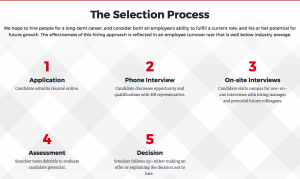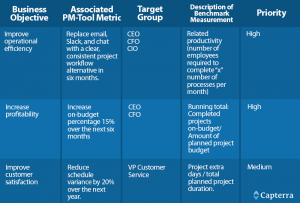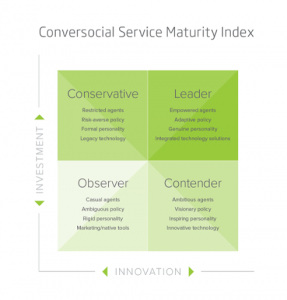Starting your own business can be the best way to take control of your life and potentially earn more income. However, that’s easier said than done, and most people are scared to take this huge step. It can be the best or the worst idea, depending on the company’s success. Don’t expect to start the new Uber or Airbnb, but just a life changing start of becoming a business owner.
Step by step
1. An idea that’s good but you like too:
Before you do anything you must have a clear idea for your business. This should not only be something you are really passionate about, but also something people need and are willing to pay for. Keep in mind that you could easily work 5 till 7 years on that same idea. So it better be good.
2. A Business Plan that makes you never forget:
Determining the basic cost of operations is the first step in making a business plan. This will tell you how much money you need to produce the product or service, and it should include rent for workspace, taxes, production costs, wages, shipping costs and more. Knowing the cost of operation is the key in determining whether your business will be profitable or not. It will also make you think and not forget ideas about every aspect of your future company.
3. Determine your potential market:
Figure out the number of people that will realistically use your product and the amount they will be willing to spend on it. If the numbers are low in comparison to the costs of running your business, then you should change your idea. Also be creative in choosing the right market niche to serve. I know someone who is very successful online, focussing exclusively on the Latino/ Spanish speaking population of the USA with a total of 50 million people. Our discount portal company Saleduck decided in 2015 to focus on the smaller European markets like French speaking Switzerland (population: 2 million) and Sweden (population: 10 million), that where left out by our giant competitors. Rather then the ‘more logical’ big European markets like France, UK or Germany. So not only look at market potential but also take a close look at competitiveness. You call this the “blue ocean strategy”.
4. A Marketing Plan that gives a positive ROI:
Creating a budget is the first step in any successful marketing plan. You need to know exactly how much money you can spend on advertising etc. Then you can figure out effective ways and methods of promoting your business. Don’t do the ordinary stuff, be very creative with the small budget you will have. In my opinion this is one of the most important parts, there are many failed businesses because they had no solid and creative marketing plan or budget to execute it.
5. Build the infrastructure you need:
Most companies have there own working area. This can be your home office at the start, or maybe you have friend who has some left over space. If your business is small and doesn’t require a big space or additional employees, then go for a cheap option. If you can work from the comfort of your home, that’s great – but if not, then you should rent a place. But also be creative on this too. What do you think of a pop up store? Maybe negotiate a revenue share with the owner of the property? These can be cheap way’s to test a location. When and only when you have a profitable and stable company for years you can buy your own area. If you are renting, always make sure you have a flexible contract, so you can increase, decrease in size or cancel rent immediately.
6. Purchasing quality equipment for cheap:
Now that you have your working area, its time to fill it with the equipment needed to start the production of the product or service you’ll offer. This can be anything from mechanical equipment such as machines and computers, to simple desks and chairs. Be smart, buy second hand, borrow things from friends, and look for quality. A penny saved is a penny earned, also in the long run!
7. Build a customer base that sticks with you:
You need to reach out to the potential customers in ways that make them want to use your service. Therefore, your advertisement needs to grab their attention and capture their imagination. So be creative and think of anything that would be appealing to your future customers. One way to do it is to offer a free sample to the right people who have influence and can spread the good words about your business. At first, always try to get direct ROI (return on investment) on your marketing efforts, branding is more expensive and can be done later.
8. Customer service:
Owners often forget this “make or break” aspect of the business. Exceptional customer service could be the thing that separates your business from the competition. So treat every customer like they are the biggest client, and always go that extra mile. It’s also important to remember that the customer may not be always right, but you need to be able to let them think that they are. It’s often cheaper to maintain a customer then to find new ones.
The back-up plan
Starting your own business doesn’t have to be a huge risk, and if you like to play it safe, the best thing to do is to start your own business while you are still working. Having a job is a good start for the first time entrepreneurs as it minimizes the risk. However, organizing the time and energy for your new company while having a full-time job can be very hard, but luckily, here are some tips to make it work:
Set a schedule
Your start-up workday begins after your job days ends. Allow yourself a break to rest and have some physical activity that can clear your head. Then work from 8 pm to 12 till midnight for example and focus on the essential aspects of your business like the ones mentioned above. During weekend work on less important tasks, but never forget to rest and sleep enough and also spend some time with your family.
Reduce your costs
Spending money to earn money is a policy you must follow, but when you are just starting your company you have to spend money only on the essential things. Hiring a graphic designer to design the smallest things, or ordering company printed-paper is not something you really need right now, or you can do it yourself. Also, lower your personal costs, and sell or rent out stuff you don’t need so you can invest more into your own company.
Here’s where you should spend your money on:
1. Customer Acquisitions
2. Building a better product
3. Customer support
Conclusion
Starting your own business is hard, but if it were easy then everyone would be a successful entrepreneur. The reality is that not many companies succeed and if you want to be successful you have to follow the advice you will get, and think of every single step you will take next. Find something you are passionate about that helps people, and then slowly begin building your company. Work hard, hustle as much as you can and never, ever give up.
(23)
Report Post



